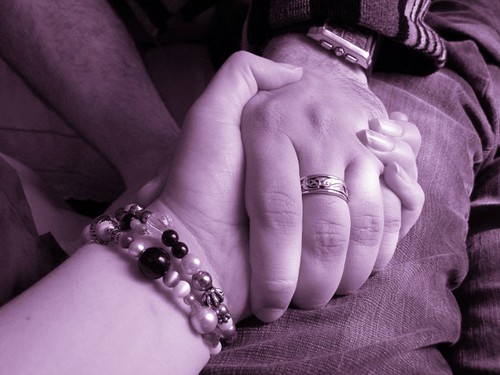A chaotic December meant I didn't do this last year, but I thought I should try to review this year, particularly as it featured such big chunks where I've been decidedly unwell, and there were so many things I wanted to do, had agreed to do or half-started that I then had to give up because of my deteriorating health. Before I started writing things down, it felt like there would be very little to say, but I did really quite a lot in the spring and haven't been completely idle since. This is going to read like a dreadful bragging Christmas Letter, but it's my birthday and this is mostly for my own sake.
- I had started doing a bit of editing for the F-Word towards the end of last year, but I think it was at the beginning of this year that I officially became Features Editor. Then my health deteriorated and I had to give it up this summer, but it was a very interesting and satisfying experience - I had previously enjoyed the mechanics of editing other people's work, but the best bit was facilitating others to say what they wanted to say to a significant audience.
- Early on in the year, I planted a load of vegetables. As the spring progressed into summer, my health meant things got a bit out of control, but those things that weren't killed off by neglect included tomatoes, lettuces, a small amount of pak choi (the caterpillars do love the stuff), radishes, baby sweetcorn (that was particularly good), peas, strawberries, French beans and runner beans. Oh and potatoes - lots of potatoes grown in sacks. I now have two table-height vegetable patches in the garden so I don't have to bend down.
 |
| I model a winter lettuce - a woman with a lot of hair holds a lovely green lettuce as big as her head. |
- I had written this article last December but it was published this year and I'm very proud of it.
- We looked after a lovely old border collie for about a month, which was rather nice.
- I have had a lump in my armpit for the past six months. After the first two, it triggered NHS Lump Panic, eight individual strangers got to see my naked breasts in one afternoon but it was all fine. All this happened at a time when I could really have done with a break, but the care I received at the Breast Clinic was extremely good. Do get your lumps checked out.
- I made a mermaid's tail sleeping bag for my niece. I scrapped an earlier attempt because it was a bit too small - at least, a four year old would grow out of it in no time. The finished version should serve her well if she is still interested in being a mermaid into middle age.
 |
| I model the mermaid's tail - an enormous mermaid reclines in a wicker chair with a somewhat seasick expression on her face. |
- I wrote quite a few blog posts and a couple of features for the F Word in the first half of the year. My favourite is this about women who, by virtue of being disabled, old, fat etc. are considered sexually and romantically unattractive by our culture.
- I drove a car! I have had a provisional license for a few years, but this year, on one occasion, I actually drove. It was awesome!
- It was the twentieth anniversary of my becoming sick in August, so I wrote a series of posts about chronic illness and coming to terms with loss. As, if you're reading this, you are almost certainly aware.
- I have been writing and editing fiction. Just not nearly as often or as enough as I would like.
- In the midst of everything, they happened to discover that I was very deficient in Vitamin D. I've now got an evangelical zeal about telling folks who also might not get out much that they should get their Vitamin D checked. However, I am too polite to give unsolicited health advice, so this may be the only time I ever mention it.
- Purple Prose, a book about being bisexual in the UK was published. It includes some of my words as well as the words of far more interesting and brilliant people.
- My Dad retired, which has been absolutely great. His work was stressful and now he is not only very much more relaxed, but we see a lot more of him and have had some modest adventures together.
- I had lessons in the Alexander Technique to improve my posture, which is something I have fancied doing for years. Of course it hasn't fixed anything, but it has dramatically reduced certain kinds of pain in my back.
 |
| Snuffles the hedgehog - a fluffy brown hedgehog eats from a dish of mealworms. She was one ill-tempered hedgehog. |
- We installed a camera to watch the garden after we'd gone to sleep, to monitor the full extent of hedgehog activity. We saw a lot of hedgehogs and one night, a tawny owl landed in the garden and sat down with one of the hedgehogs to have a meal.
- Stephen acquired a tabletop game called Zombicide, where you go round killing zombies with dice rolls. This turned out to be tremendous fun and we have spent several happy evenings liberating prison blocks from the zombie hoards.
- We saw a little more of our nephew and niece this year and had some really good times with them. They are both fantastic children and so much fun to be around.
 |
| A young blackbird - a brown bird with pronounced beak and speckled breast, sitting in a bush with white flowers. |
- We think at least one hedgehog was born in the garden this year, as were some sparrows and a blackbird (left). This chap startled me when I was trying to see if he was still in the nest.
- Politics has been pretty grim. The world's progress towards being a more peaceful, freer, happier, healthier place - which has been considerable, even in very recent times - is in grave danger of stalling. A very great number of good folk have brought that progress about through hard work and I hope, a similar effort by very many people in both big and small ways will get us back on track. That may sound a bit crass amid all this light personal news, but like a lot of people, politics has been deeply personal this year.
- We managed to get to the theatre for the first time in a few years to see the Cambridge Greek Play do Antigone and Lysistrata. The latter was particularly brilliant, satirising the ongoing political nonsense and with songs in Ancient Greek we were all invited to sing along with.
 |
| Two happy people at a picnic bench with a field in the background. |
- As everyone knows, Stephen is an amazing person, but he has been particularly heroic this year. We've always performed care for one another in ways which merge with everyday kindnesses and physical expressions of affection, but this year the work of keeping us going has shifted very heavily onto his shoulders. While it has been tough, we have not only survived, but we've often had a great deal of fun.
- It's been a very difficult year for several of our friends and family; other people have had major health crises, bereavement and money worries, as well as the personal effects of the year's disastrous political events. Thus I come to the end of 2016 with a heart full of love and hope that next year is much much better and brighter for those who have had to battle through to this point.
I hope that anyone who actually read down this far has a wonderful, peaceful holiday season whatever you're doing with it and a very happy New Year.










